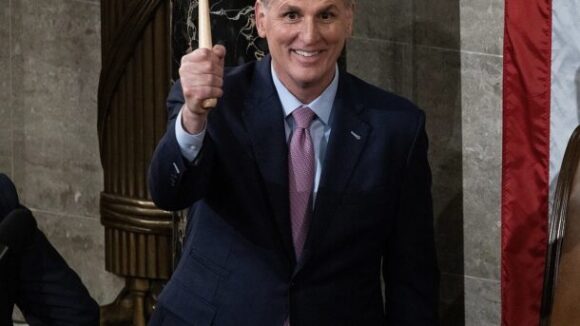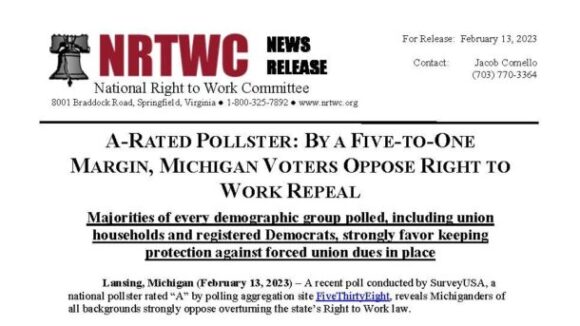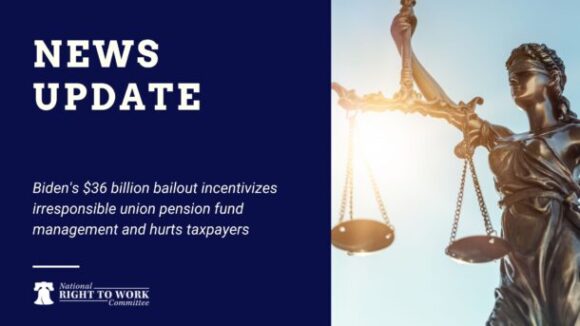Next Government Union Bailout Can Be Stopped
Speaker Kevin McCarthy has vowed that the House will “use the power of the purse” to “check” Big Labor President Joe Biden’s policies.
The Obama Adminstration’s penchant for issuing executive orders and decrees that benefit their political allies is creating a backlash. From National Review:
The dispute can be traced back to the Railway Labor Act, a 1926 law that made it relatively difficult for railroad workers to unionize — the idea being that without serious limits on union power, labor organizations could hold the nation’s crucial transportation infrastructure hostage to unreasonable demands. The following decade, none other than Franklin Delano Roosevelt expanded the law to cover America’s emerging airline sector as well.
One limit the law puts on airline unions is that in order to unionize, they need consent from “the majority of any craft or class of employees.” Note that there’s a difference between the “majority . . . of employees” and the majority of employees who choose to vote in a union election. The way the law is written, if a “craft or class” — say, flight attendants or customer-service workers — has 100 members, and only 80 cast votes, the union still needs 51 votes, not 41, to win the right to represent the workers. This puts the onus on the unions to get the word out and increase turnout.
The National Mediation Board — which has decided RLA disputes since 1934 — interpreted the law this way for its first 75 years. But then, Obama took office and changed the composition of the board to 2–1 Democrat. In 2010, with no deliberation by Congress whatsoever — but with urging from the unions — the NMB simply changed course, declaring that from now on, a majority of voting employees is all that’s needed to unionize a work group. The board made several smaller changes as well, all of which favored the unions.
The unions immediately began exploiting this rule change. In the case of the Delta-Northwest merger, the unions already had filed election applications before the rule change, but withdrew them and then re-filed so that the elections could take place under the new rules.
Congress needs to reassert itself in the face of the NMB’s brazen sop to the unions, and the law now under consideration in the House — Title IX of the FAA Reauthorization Bill — would do just that, overriding the policy change. The Transportation and Infrastructure Committee shot down an amendment that would have removed the provision by a 30–29 margin (three Republicans sided with the unions), and a similar amendment will no doubt be proposed when the bill goes before the entire House this week.
Title IX will force the NMB to interpret the RLA to mean what it says — what it has been held to have said for 75 years — and insist that Congress be the entity to make major changes to labor law. It will also make it more difficult for unions to grab hold of airline employees, in many against the will of a great number of those workers. (Under collective bargaining, when a majority of workers vote to unionize, the union gets to represent all employees.)
If the new House is serious about free markets and the rule of law, it will not hesitate to enact this legislation.

Speaker Kevin McCarthy has vowed that the House will “use the power of the purse” to “check” Big Labor President Joe Biden’s policies.

A recent poll conducted by SurveyUSA, a national pollster rated “A” by polling aggregation site FiveThirtyEight, reveals Michiganders of all backgrounds strongly oppose overturning the state’s Right to Work law.

Biden's $36 billion bailout incentivizes irresponsible union pension fund management and hurts taxpayers